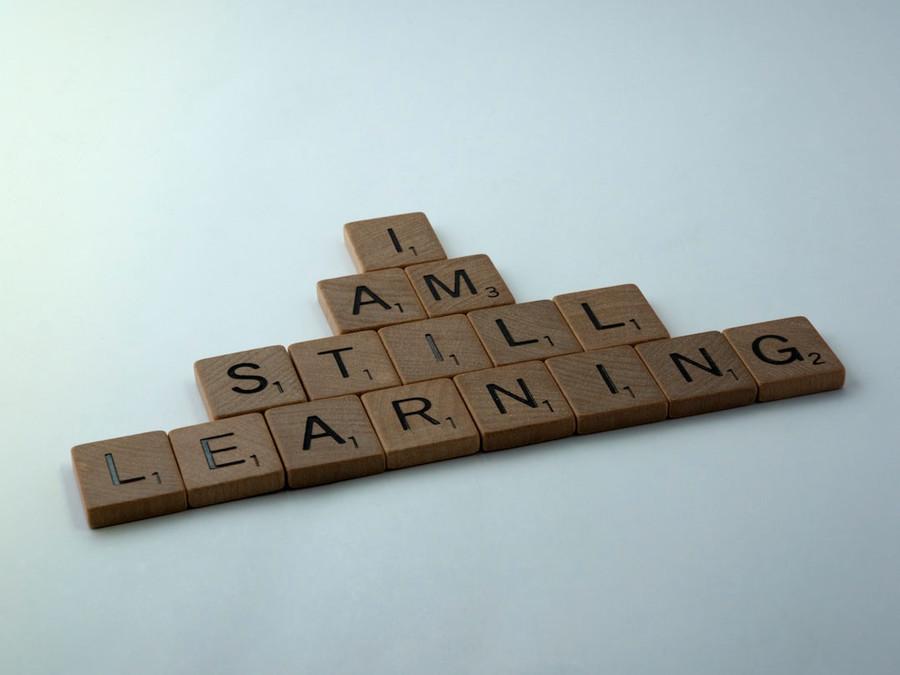Explore the World's Best Ideas
Join today and uncover 100+ curated journeys from 50+ topics. Unlock access to our mobile app with extensive features.
What Do you Want?
If you want to learn skills that improve your salary
But you don't usually remember the information you're learning
These are 3 tools that, according to science, will improve your salary by learning new things
9
105 reads
Probability
Maybe you finished uni two years from now.
In that time, you have not been able to improve your salary because they ask you for specializations, master's degrees or doctorates.
And you probably don't have enough time or money to start taking them.
Let's see how you can learn better to improve your salary according to science →
9
84 reads
How We Are Used to Learn
Before I used to learn new information in the following way:
I got up early, took a shower with cold water to have energy, had breakfast and then I had a coffee to start studying.
I felt awake, but after a couple of days the information I had learned was no longer on my mind.
Why?
9
78 reads
The Apparent Mistake
Anyone would say that I was not studying properly.
That I was not studying with active recall or spaced repetition, which are the most effective techniques for learning according to science [1].
And no, that was exactly what I was doing.
(By the way, active recall and spaced repetition refer to asking ourselves what we learn and doing it spaced out in time).
9
70 reads
More Questions...
So, if I was studying in the most appropriate way according to science,
Why was I forgetting the information?
Why did you have to start from scratch every time?
9
66 reads
Two Reasons
Because I didn't space the information out enough.
Because I didn't know that chemicals in the brain influence learning.
Let's see two things:
How many times you must repeat the information you study to remember it forever.
What is the chemical that will help you remember the information you learn and how to get it.
9
65 reads
How Long do you Have to Repeat the Information to Remember it Forever
Let's start with the first: how long do you have to repeat the information to remember it forever.
As much as I'd love to promise you foolproof strategies, life doesn't work like that. Everything fails at a certain moment, even one fails.
And since you yourself fail, you can't rely on sparingly repeating the information so many times (because you're also lazy).
So instead of focusing on how many times you should repeat the information you study, do this →
9
53 reads
The Key
Add emotion to what you learn.
And no, I don't mean to encourage what you are studying.
I mean looking for the information you learn to be more emotional.
Science has shown that it is easier to remember information this way [2].
9
59 reads
How to Make the Information You Learn More Emotional?
How to make the information you learn more emotional?
The easiest way is to relate it (hypothetically) to your daily life.
For example, if you are learning how to create a web page, think about how you would explain that to your partner if you wanted them to understand.
10
58 reads
There's Something Missing
You may be wondering what happened to the chemical.
What happened to that that was going to allow you to better remember the information in your brain.
9
52 reads
The Chemical that Will Help you Remember Information Easier 👇🏻.
In the post we talked a bit about asking ourselves what we study and doing it spaced out over time.
The problem is that you probably don't have the time to ask yourself the information that you learn very often.
What to do in those cases?
Is it worth playing the victim and saying you can't improve because you don't have enough time?
Not really.
Especially since there are always better strategies.
And one of those strategies has to do precisely with a chemical substance that has a very particular result:
9
44 reads
It Decreases the Number of Repetitions Needed to Remember the Information you Learn.
That substance is adrenaline, and it can be achieved by exposure to cold or by consuming caffeine*.
But the key is to do it right after learning [3].
Tell me in the comments if you prefer to take a shower with cold water or drink coffee. I read you
*this is informative and not medical, for more information consult a professional.
9
49 reads
References (I)
[1] Dunlosky, J., Rawson, K. A., Marsh, E. J., Nathan, M. J., & Willingham, D. T. (2013). Improving Students’ Learning With Effective Learning Techniques: Promising Directions From Cognitive and Educational Psychology. Psychological Science in the Public Interest, 14(1), 4–58. https://doi.org/10.1177/1529100612453266
[2] Cahill L, McGaugh JL. Mechanisms of emotional arousal and lasting declarative memory. Trends Neurosci. 1998 Jul;21(7):294-9. doi: 10.1016/s0166-2236(97)01214-9. PMID: 9683321.
9
17 reads
References (II)
[3] Cahill L, Gorski L, Le K. Enhanced human memory consolidation with post-learning stress: interaction with the degree of arousal at encoding. Learn Mem. 2003 Jul-Aug;10(4):270-4. doi: 10.1101/lm.62403. PMID: 12888545; PMCID: PMC202317.
9
42 reads
IDEAS CURATED BY
Hi all! 📚I'm Juan, a Learning Coach and founder of Data Integration Systems from 🇨🇴! I'm passionated about evidence based learning, marketing & systems. You can reach me at [email protected]
Similar ideas
4 ideas
How to take notes while reading a book
nesslabs.com
2 ideas
How to Be Mindful While Reading
nytimes.com
8 ideas
Read & Learn
20x Faster
without
deepstash
with
deepstash
with
deepstash
Personalized microlearning
—
100+ Learning Journeys
—
Access to 200,000+ ideas
—
Access to the mobile app
—
Unlimited idea saving
—
—
Unlimited history
—
—
Unlimited listening to ideas
—
—
Downloading & offline access
—
—
Supercharge your mind with one idea per day
Enter your email and spend 1 minute every day to learn something new.
I agree to receive email updates











